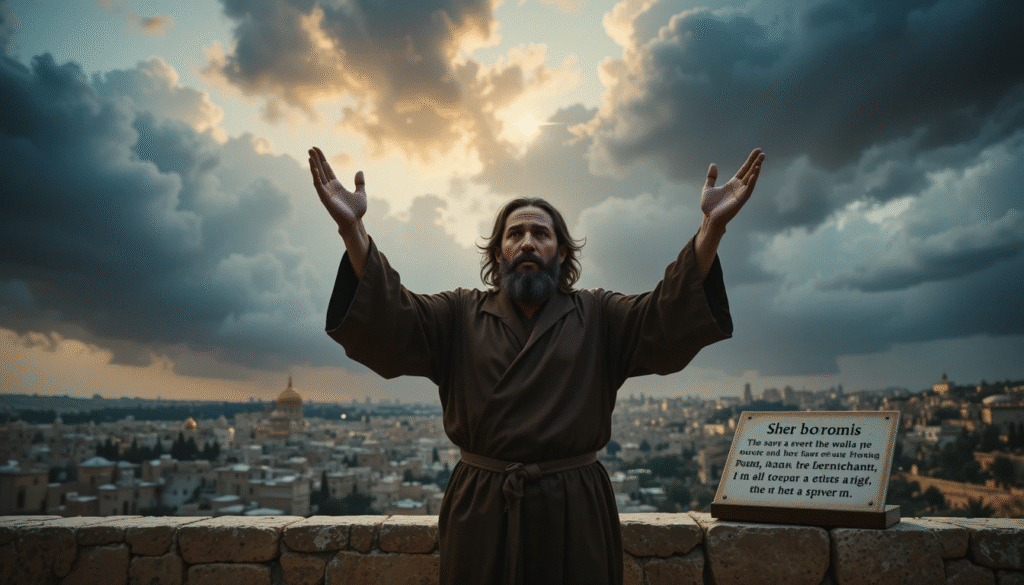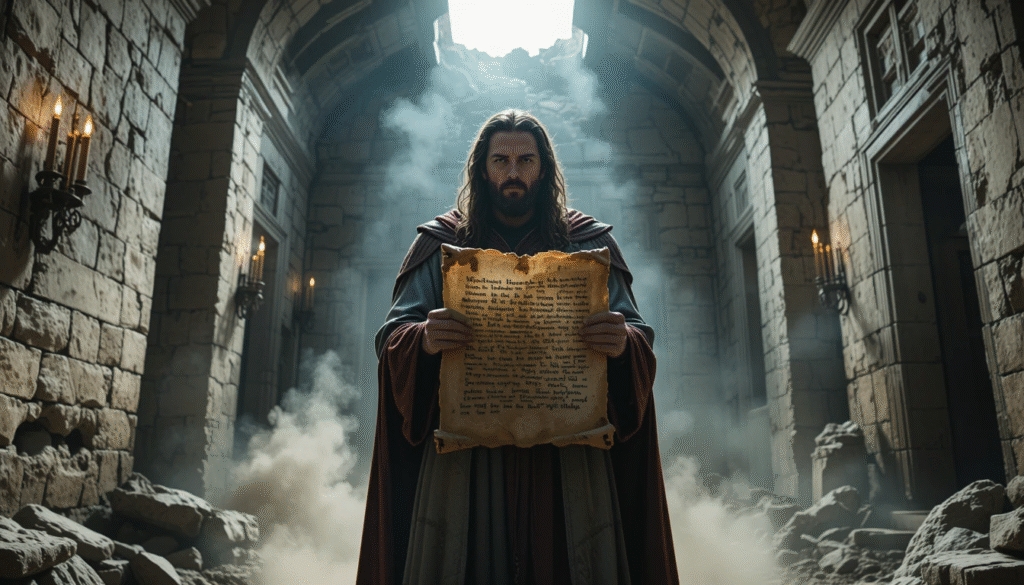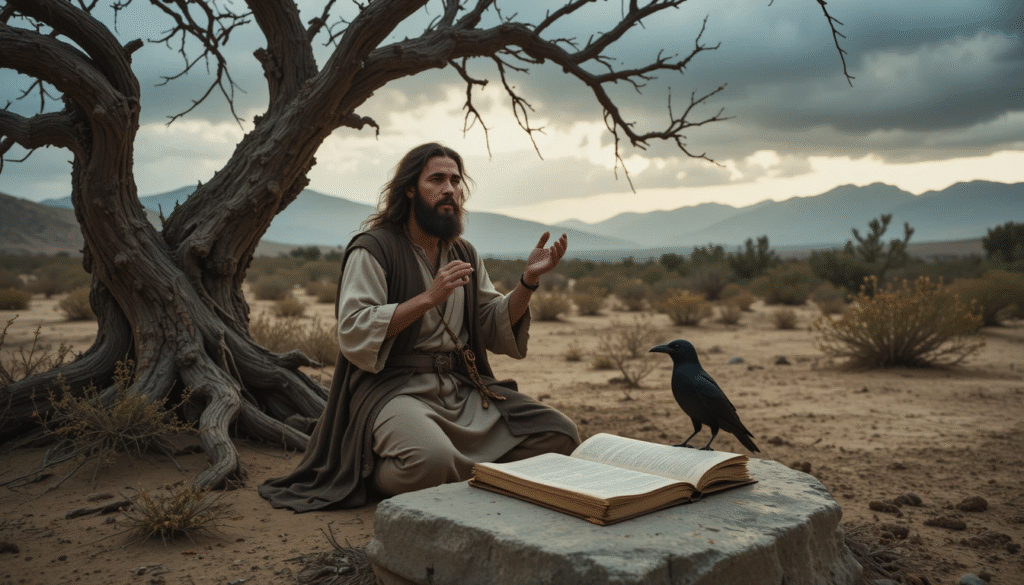What is the Book of Malachi about?
The Book of Malachi is the last book in the Old Testament. It contains only four chapters, but its message is powerful. Malachi speaks for God to the people of Israel at a time when their hearts had grown cold. They were still offering sacrifices. They still gathered at the temple. But something was missing. Their worship had become routine, and their leaders were not honoring God.
Malachi brings a message that’s part warning and part invitation. God speaks with love and correction. He tells the people, “I have loved you,” but they question how. This reveals the deep disconnect between God and His people. Malachi addresses priests, families, and the whole nation. He speaks about offerings, justice, and the future coming of the Lord.
This book is about the heart behind faith. It calls people back to real devotion—not just rituals. Malachi stands as a closing word before 400 years of silence from God. But those final words point forward. They speak of a coming messenger and a new day. So, the Book of Malachi is both an ending and a beginning.
Who was Malachi in the Bible?
The Bible doesn’t give many personal details about Malachi. His name means “My Messenger.” Some scholars think that might not be a name, but a title. If that’s true, it shows how focused Malachi was on the message itself—not on who he was.
Malachi likely lived around 430 B.C., during the time of Nehemiah. The temple had been rebuilt, and sacrifices had started again. But spiritually, the people were drifting. Malachi’s role was to remind them of the covenant between God and Israel. He challenged priests and people alike.
What makes Malachi unique is his bold, clear style. He speaks in a back-and-forth way. God says something, then the people respond with a question. This conversation style makes the book feel personal and alive. Malachi was the final prophet before the long pause that lasted until John the Baptist.
When was Malachi written and why is it significant?
Malachi was written around 430 B.C., after the return from Babylonian exile. The people had rebuilt the temple and were trying to rebuild their lives. But hope had started to fade. They expected things to get better—but instead, things felt stuck.
This moment in history is key. Malachi steps in to ask the people where their faith went. He brings God’s voice into a quiet, tired community. The message is significant because it’s the last voice before 400 silent years. No prophet would speak again until the New Testament begins.
The timing of Malachi gives it weight. It’s not just about the past—it prepares people for what’s coming. His words about the messenger, about Elijah, and about God’s judgment all point toward the future. That’s why Malachi is not just history—it’s a bridge.
What message did Malachi deliver to Israel?

Malachi’s message had several parts, but they all come from God’s deep love. First, God says, “I have loved you.” That’s how the book begins. But the people are skeptical. They don’t feel loved. They had gone through exile and hardship.
Then Malachi shows how the people have been disrespecting God. The priests offered poor sacrifices. Families were breaking their promises. People were saying that evil was good. Malachi called all of this out—not with anger, but with truth.
But God also gives hope. He invites the people to return to Him. He promises to bless them if they’re faithful. The message is clear: God hasn’t changed. His love is still there. But the people need to come back with their hearts, not just their habits.
Why does Malachi focus on priests and sacrifices?
Malachi speaks directly to the priests because they were supposed to lead the people in worship. But they had stopped treating God’s altar with respect. They offered sick animals—things they wouldn’t even give to their rulers.
This wasn’t just a small mistake. It showed that they didn’t fear God. Sacrifices were meant to be holy, to show honor. But the priests were treating God like He didn’t matter. That’s why Malachi says in 1:8, “Would your governor accept this?”
Malachi reminds them of the covenant God made with Levi—the tribe of priests. That covenant was about truth, peace, and righteousness. The focus on priests and sacrifices shows how serious God is about worship. Not just the action—but the attitude behind it.
What does Malachi say about tithes and offerings?
One of the most quoted parts of Malachi is in chapter 3. God says, “Will a man rob God?” The people ask, “How have we robbed You?” And God replies, “In tithes and offerings.”
Tithes were the tenth part of one’s income, given to support the temple and priests. But people were holding back. They didn’t trust that God would provide. So they gave less—or gave nothing.
God tells them to test Him. “Bring the whole tithe… and I will open the windows of heaven.” He promises blessing. But this isn’t a business deal—it’s about trust. Giving shows faith. Malachi’s message is clear: giving is a way of returning to God.
How does Malachi speak about God’s love and justice?

Malachi starts with love but doesn’t ignore justice. God is patient—but He is also fair. The people were asking, “Where is the God of justice?” They saw evil people thriving and wondered why God didn’t act.
But God says He will come. Like a refiner’s fire. He will purify. Not to destroy—but to clean. Justice doesn’t always come fast—but it comes sure. Malachi 3:5 says God will judge sorcerers, adulterers, and those who oppress others.
Love and justice go together in Malachi. God’s love calls people back. But His justice makes things right. Malachi reminds us that both are part of who God is.
What does Malachi reveal about the coming messenger?
In Malachi 3:1, God says, “I will send My messenger, who will prepare the way before Me.” This messenger would come before God’s arrival. He would prepare hearts and clear the path.
This messenger is later revealed in the New Testament as John the Baptist. He prepares the way for Jesus. But in Malachi, he’s still a mystery. He’s the one who speaks before the Lord comes to His temple.
This is a key prophecy. It shows that God was planning something greater. Malachi wasn’t just correcting people—he was pointing forward. To a day when the Lord Himself would come.
What is the connection between Malachi and Elijah?

The final words of Malachi speak of Elijah. In Malachi 4:5, God says, “I will send you Elijah the prophet before the great and dreadful day of the Lord.”
Elijah had already gone to heaven centuries before. So this refers to someone coming in Elijah’s spirit and power. That’s how the New Testament describes John the Baptist.
Malachi connects the old and the new. Elijah’s return means the hearts of people will turn—fathers to children, children to fathers. It’s a sign of healing. Of change. Of preparation for the Lord’s arrival.
Why does the Bible end with Malachi?
Malachi is the last voice before silence. After him, there are no more prophets until John the Baptist. The Old Testament closes with a warning—and a promise.
It ends with the hope of a new day. A messenger will come. The Lord will appear. The fire will refine. And healing will rise like the sun.
Malachi ends the story—but leaves the door open. Not with a full stop—but with a pause. A sacred waiting. The next word comes centuries later—in Bethlehem.
📚 Shop Our Favorite Ancient Texts
📖 The Book of Enoch 👉 https://amzn.to/4eCzsjj
📖 The Apocrypha Master Collection 👉https://amzn.to/3GvKWbM
📖 Ethiopian Bible in English (Complete 88 Books) 👉 https://amzn.to/45ToL9L
📖 The Book of Giants 👉https://amzn.to/44BDLqm
📖 The Dead Sea Scrolls Bible 👉 https://amzn.to/3Tp1ViV
📖 The book of Lilith 👉 https://amzn.to/4lA7Zkt
Also read more of our Insights here

